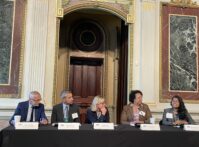-
ECSP Weekly Watch | January 6 – 10
January 10, 2025 By Angus Soderberg
A window into what we’re reading at the Wilson Center’s Environmental Change and Security Program
Room for Justice in Vietnam’s Energy Transition? (The Diplomat)
Vietnam’s crackdown on environmental leaders such as Hoàng Thị Minh Hồng on disputed charges raises significant concerns about human rights, transparency, and civil society’s role in its energy transition. These arrests have garnered international attention, but Vietnam’s government argues that they had nothing to do with environmental work. And while Hoàng and other activists have been released, their work remains curtailed. The message is clear: you’re not welcome here.
This targeted repression of activism undermines Vietnam’s claim to inclusivity in its Just Energy Transition Partnership (JETP)—as well as a shrinking civic space for advocacy. Despite legislative advances, Vietnam’s restrictive policies and selective enforcement continue to hamper genuine public participation. Coupled with its continued heavy reliance on coal, Vietnam’s top-down approach to the JETP flies in the face of its international commitments to fostering collaboration and stakeholder engagement in addressing climate change.
The international donor community’s influence on Vietnam’s stance faces challenges. Public advocacy helps activists and donor safeguards create transparency, yet substantial change remains elusive. Partner nations must balance diplomatic ties with a call for enforcement of rights clauses in agreements. Without international pressure and clear conditionalities, Vietnam’s energy transition may be a case of rhetoric outpacing reality.
READ | A Little Help from My Friends: Chinese Clean Energy Investments in Vietnam
UN Expert Calls for Reform of the Climate System (The Guardian)
UN special rapporteur Elisa Morgera argues that UN climate summits (COPs) are not living up to their acclaim. She sees the present state-driven and consensus-based negotiations as a process dominated by powerful actors, false narratives, and ineffective technological solutions. The result? These meetings overlook the disproportionate harms that climate change inflicts on vulnerable nations and communities.
Morgera’s assessment extends to the COPs’ exclusion of Indigenous experts, grassroots voices, and evidence-based local solutions from climate negotiations, alongside a lack of transparency in regard to corporate interests. In Baku at COP29, for instance, she observes that controversial carbon markets were fast-tracked without proper discussion or scrutiny.
Yet while Morgera acknowledges systemic issues within the COP process, she points to a lack of political will from member states (and even some nations that are “not acting in good faith,”) as deeper reason that meaningful reform has been stymied. Yet as the COP system falters, extreme climate disasters are intensifying globally. So necessity compels a transformation of COP. Morgera’s vision for change includes a system with legally binding accountability for high-emitting nations, recognition of climate justice, and a shift from incrementalism to equitable, community-driven climate solutions.
READ | Gaza, Yemen, Syria, Human Rights, and Oil: The Elephants in the COP28 Room
Tuvalu Prepares for its Climate Future (Reliefweb/UNDP)
In many respects, Tuvalu is the archetype of the phrase “on the frontlines of climate change.” As the ocean rises around this archipelago halfway between Hawaii and Australia, storm surges in early 2024 and Cyclone Pam in 2020 offer a glimpse of the island nation’s climate future that is driving Tuvaluans to make strides in climate adaptation.
The Tuvalu Coastal Adaptation Project (TCAP) equips communities to combat climate impacts with cutting-edge training in shoreline mapping, hazard tracking, and disaster risk assessments. These initiatives empower local leaders with data-driven tools to make informed decisions about infrastructure planning and climate adaptation—especially since accurate measurements have life and death consequences in Tuvalu. TCAP’s capacity-building programs are enhancing Tuvaluans’ ability to assess and mitigate risks across sectors, from water and food security to health and infrastructure.
The TCAP project also integrates gender mainstreaming workshops and an emphasis on social inclusion to ensure equitable participation in climate resilience efforts. Tuvaluans bring a wide range of skills to this effort, and representatives from diverse organizations, including the Tuvalu National Council of Women and Tuvalu Women for Change, are developing strategies to embed gender equality into disaster planning. Such inclusive practices mean that Tuvaluan communities are shaping a new Island Strategic Plan that will proactively address the challenges of climate change and safeguard their future.
READ | Guam and Vanuatu: Different Paths from Environmental Change to Human Insecurity
Sources: Diplomat, Guardian, Human Rights Watch, Los Angeles Times, Lowy Institute, New York Times, South China Morning Post, UNDP, UNFCCC, World Bank
 A Publication of the Stimson Center.
A Publication of the Stimson Center.







